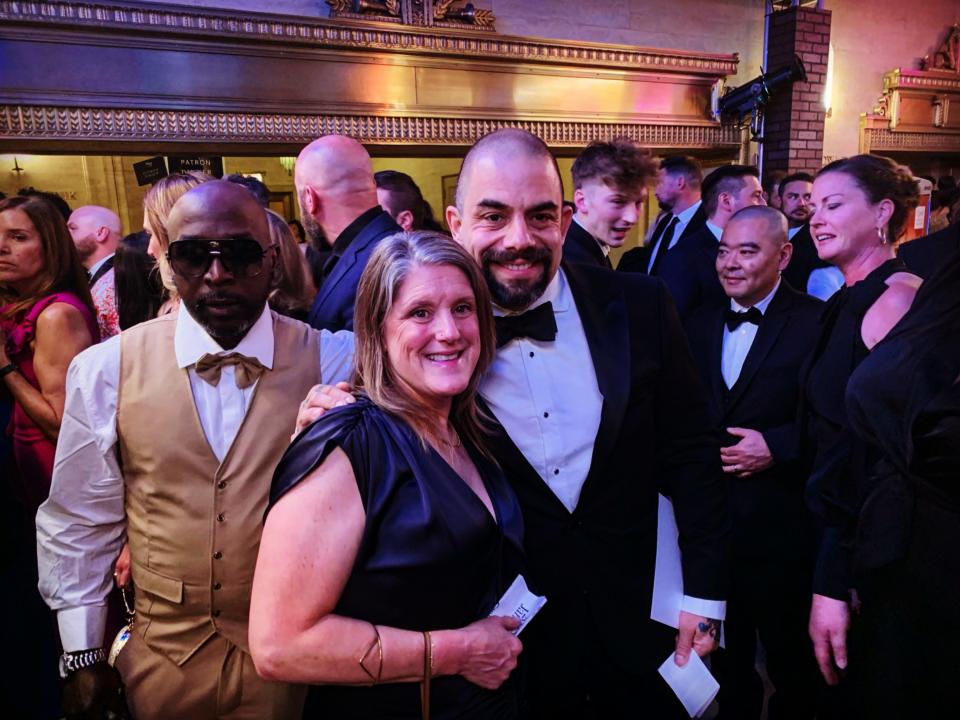'The business just isn't here for us anymore.' Owner reveals why Salazar is closing in OTR

Many Cincinnatians were shocked last week when a social media post announced the upcoming closure of Salazar restaurant in Over-the-Rhine.
After all, Salazar was among the first restaurants to put Over-the-Rhine on America's culinary map when it opened in late 2013. During its 10 years of operation, it frequently topped local best-restaurants lists and received national accolades, including multiple James Beard Award nominations for its chef and owner Jose Salazar.
In a Nov. 29 Instagram post, Jose Salazar said the restaurant, which will have its final service on New Year's Eve, had simply outgrown the space and that he and his wife, Ann, were looking to reopen somewhere else.
"When we look at Salazar and what it wants to be or could be, the space is limited," Salazar later told The Enquirer. "There's only so much we can do in that tiny kitchen. It handcuffs us."
But according to Salazar, his plans to close and relocate the restaurant have been in the works for at least a year. While it was, indeed, too small to accommodate his vision for what the restaurant could be, it was also performing far short of its pre-pandemic heyday, Salazar said. Other challenges factored in, as well, most notably exorbitant increases in food and labor costs in recent years and the unsustainability of the restaurant business in general.
🍽️ At the Table: Click or tap here to sign up for Keith's weekly newsletter

"We were going back and forth for a long time trying to decide what to do," Salazar said. "It hasn't been as busy as it had been pre-COVID."
Salazar said his food and labor costs have risen at least 20% each since before the pandemic.
"Labor is one of the greatest Achilles heels in our industry," he said. "I don't want to make it sound like it's not justified. It makes sense. These people are in need of a living wage. One good thing that has come out of the pandemic is that people understand that there is a lot of value in (restaurant) work. But menu prices have to catch up. The reality is that the whole model is in need of revamping. ... We should be charging 40-50% more than we are. But I get it, from a consumer standpoint, that just isn't viable."
Salazar also said the costs of things such as employee parking and basic necessities, such as oven hood cleanings, have gone up, too.
"Everything has gone up," he said, adding that − if it weren't for the decreased amount of customers coming to the restaurant − he might have been able to absorb those costs. "The business just isn't here for us anymore."
Why Salazar?
Salazar is one of four restaurants owned by Jose Salazar, who first came to Cincinnati in 2008 to take over the kitchen of The Palace, Downtown. His other locations include Mita's (Downtown), Goose & Elder (near Findlay Market in Over-the-Rhine) and Daylily (a neighborhood bodega and deli in Columbia-Tusculum). All three are popular, but to many Cincinnati diners, Salazar was long considered the soul of his small restaurant empire – the same way Jean Robert's Table once was for the late Jean-Robert de Cavel.
But the small size of Salazar also made operating it more expensive. "From a buying power standpoint, we have to buy everything in smaller quantities," he said. "So we have to buy beets in 10-pound bags vs. 50-pound bags, paying 20% more. A split case of wine is more expensive, too. All of the things that don't seem all that impactful on their own can multiply and make having a (smaller) space more difficult."
Salazar said his much larger Downtown restaurant, Mita's, is doing well and turning a profit. Daylily is also chugging along thanks to low overhead and a dependable customer base. Goose & Elder, on the other hand, has presented a struggle for Salazar. While its breakfast and lunch customers – along with a flourishing catering business – have kept it at least somewhat viable, Salazar said he's had to constantly rethink his approach to it, regularly changing the menu and hours.
While Goose & Elder did away with dinner service last year, Salazar said he is bringing it back on Fridays and Saturdays on a trial basis starting this month.

What's next?
Salazar said he is committed to reopening a new, much larger location for his restaurant as soon as possible. He has been actively scouting during the past six months, but hasn't found the right space yet. Given the small square footage of most Over-the-Rhine properties, he is looking at other neighborhoods, including Downtown and the suburbs.
"We have been looking very actively in the last few months," he said. "The hope was we could move Salazar with no gap in between the shutdown and the reopening."
While Salazar currently has about 30 employees, the new concept will be staffed by a crew of around 10. Salazar said he is working with his staff to reassign them to his other restaurants and/or help them find employment elsewhere.
Meanwhile, Salazar will sign a new lease with his landlord, 3CDC, to reopen the current Salazar space as a bar with a much smaller menu. He is also hoping to implement a new tipping system that might serve as a model for his other restaurants in the future.
"Some of the smartest minds in our business, including Danny Meyer and others like him, have tried to figure out the whole tipping system," Salazar said. "We will see how the industry adapts. But things are going to have to change for restaurants to be good business models."
This article originally appeared on Cincinnati Enquirer: Chef/owner reveals why Salazar restaurant is closing in Over-the-Rhine

